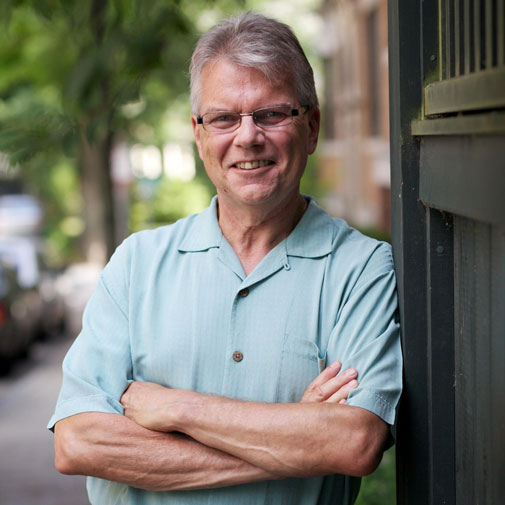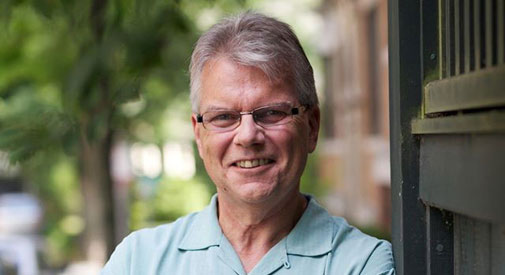Carlone, running for third term on council, has eye on planning for surging population

Dennis Carlone is running for a third term on the City Council.
With an expectation that Cambridge will grow to a population of around 140,000 within the next 30 years, City Councillor Dennis Carlone said that if reelected he hopes to spend the next two-year term focused on maximizing the number of housing units in the city and completing its development master plan.
To support such a population, Carlone said, the city needs better transportation networks, housing and retail plans, and development must be thought out carefully.
Current zoning laws don’t reflect the city’s needs and “say little about architecture,” said Carlone, whose background is in architecture and urban design and, before becoming a councillor, planned East Cambridge’s riverside. Architecture “is what makes public spaces work.”
His warning about population isn’t based on formal estimates, he said, but on his own assessment of zoning laws.
Metropolitan Area Planning Council analysts said in 2014, when a census count suggested a current population of about 109,700, that they expected Cambridge to house 118,625 people by 2030, a figure below the historical peak of 120,740 recorded by the 1950 census.
The city is in year two of a three-year process of writing a citywide development master plan, which will then be updated every five years – a process Carlone petitioned and fought for in his first term, spurred by alarm over development in the Alewife neighborhood that was far out of scale with expectations. Although the state requires all cities to have a master plan for, Cambridge did not have a comprehensive one. “You can do change in an unstructured way,” Carlone said. “Or you can do it in a coordinated, well-planned way [such that] everything that gets built adds to the city.”
Key parts of the plan include affordable housing, university-built housing for graduate students, open space and maintenance of green spaces such as Fresh Pond and the riverfront, he said.
He saw a need for discussion of retail as well.
“Many of our neighborhoods are reliant on village centers,” he said, pointing to commercial centers such as Huron village and Cambridge Street. Areas with increased housing development, such as Kendall and Alewife, lack the amenities that allow residents to live, shop and work locally, such as grocery stores and pharmacies.
Larger retail areas complement these village centers, and “I’m not against big shops,” he said. “But there has to be a mix.”
Politically, Carlone said, his second term has been easier than the first. “To get anything done in the city, you have to work with others,” he said, including other councillors, the city manager and city staff. “You have to get a majority on anything to move it forward for even seriously discussing it, let alone implementing it. So there’s a lot of give and take.”
He had to learn to not take offense when there were disagreements, and to “present the facts clearly in just a few minutes during a public council meeting,” he said.
“You have to take all emotion and passion out of it,” Carlone said, “and I have passion.”


